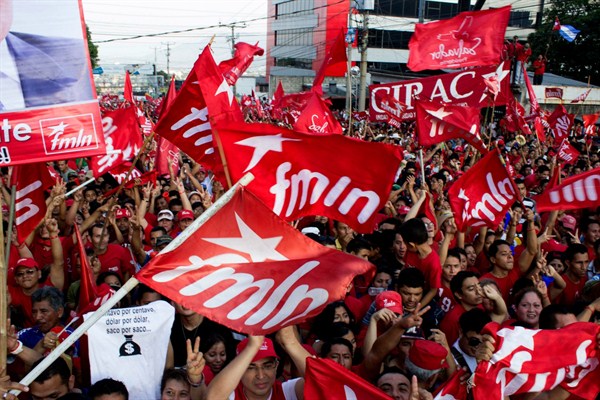On March 4, Salvadorans went to the polls for legislative and municipal elections. According to preliminary results, the opposition Nationalist Republican Alliance, or ARENA, won 37 of 84 seats in the Legislative Assembly. The ruling Farabundo Marti National Liberation Front, or FMLN, won 23, down from 31. The results are widely regarded as a stinging defeat for the FMLN, which also lost several key mayoral races, including in the capital, San Salvador.
Besides the two leading parties, the Grand Alliance for National Unity, or GANA, took 11 seats in the assembly and the National Coalition Party, or PCN, eight. Several smaller parties took a handful of seats, and for the first time an unaffiliated candidate will also enter the assembly.
The consequences of the elections for the FMLN will be significant. With more than a year of his term remaining, President Salvador Sanchez Ceren—of the FMLN—is unlikely to be able to push through any legislative agenda. Moreover, as a result of the party’s losses, he will be unable to veto opposition legislation. Together with smaller parties from the right, ARENA could put together a simple majority or even a supermajority—56 seats—to effectively bypass the FMLN on major appointments and block any FMLN legislation for the coming year.

